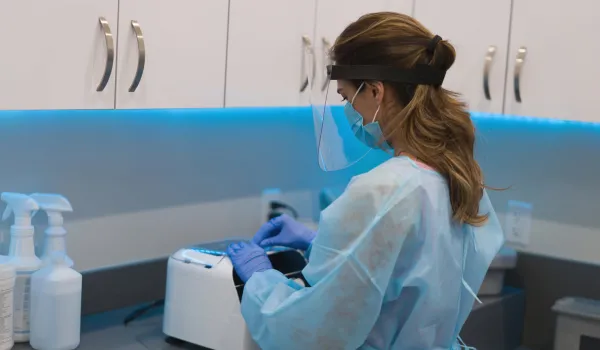Concorde Staff

As the benefits of massage therapy are discovered to extend beyond simply easing aching sore muscles, the field itself is enjoying a massive expansion within the realm of health care. And Concorde Career College's Massage Therapy diploma program is expanding and adjusting to meet those needs.
"There is a much greater presence of massage therapy in hospital settings," said Lawanda Allen, LMT, Massage Therapy Clinic Coordinator at Concordes campus in Southaven, Miss. Southaven and Concorde's Memphis, Tenn. location are the two campuses that currently offer the Massage Therapy diploma program. But, if the growth in the popularity of massage therapy is any indication, that number could grow in the future.
"A lot of massage therapy is still cash pay," Allen said, "but it's becoming increasingly common for more insurance companies to include it in their benefits. A lot of hospital patients are realizing that massage can in some cases reduce medications."
According to a recent report in U.S. News & World Report, massage therapists rank No. 8 in Best Health Care Support Jobs.
Medical benefits of massage therapy
More Americans are turning to therapeutic massage treatments in order to provide relaxation, relieve tension associated with daily stresses or to simply help with maintaining a good, balanced lifestyle. Massage therapy on a regular basis not only can relieve stress and encourage relaxation but also improve posture, improve circulation, lower blood pressure, relieve headaches and strengthen the immune system.
However, did you also know it can help alleviate many medical conditions including allergies, depression and anxiety, arthritis, asthma and bronchitis, and insomnia, among others?
New fields being created
Proof that massage therapy is exploding in the world of health care, as Allen points out, is that there are new positions being created to accommodate growing needs.
For instance, there now are Medical Massage Practitioners. Once a student has gone through a massage therapy diploma program and becomes licensed, they can carry on and extend their education for another certification that allows them to work with hospitalized and/or acute-care patients.
There also are now Oncology Massage Therapists, who are licensed to work with patients with various stages of cancer. Unlike most masseuses, they are allowed to work with breast cancer patients and massage out pain and soreness in the breast area as well as toxins left by chemotherapy treatments.
Increasing needs mean increasing demand
According to the Bureau of Labor Statistics, massage therapist employment will grow 23 percent between 2012-2022, which will add roughly 30,000 more professionals to this field.
The American Massage Therapy Association states that 87 percent of people who receive massage therapy not only use it for relaxation but for therapy for a medical ailment as well. As this number grows, so will the need for the high-quality, real-world, comprehensive education and training that Concorde's Massage Therapy diploma program offers.
In as few as 11 months, you can be an integral part of the next big boom in health care.
"Hopefully, we will see an increase in those wanting to study in this challenging and rewarding field," Allen said.

Take The Next Step Towards a Brighter Future
Interested in learning more about our Massage Therapy program? We have a Concorde representative ready to talk about what matters most to you. Get answers about start dates, curriculum, financial aid, scholarships and more!






